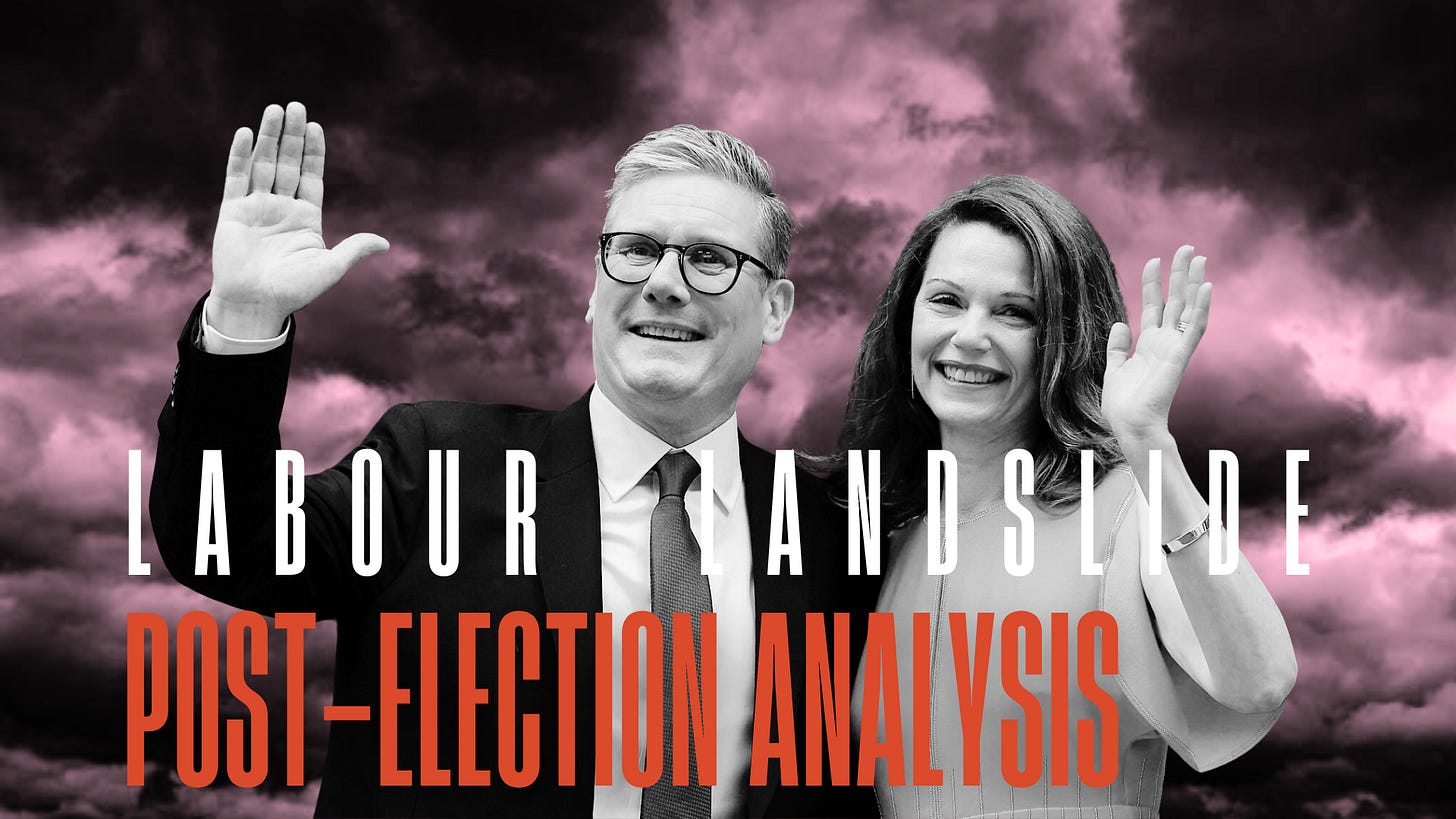In a seismic shift in British politics, the Labour Party has secured a landslide victory in the 2024 general election, ending 14 years of Conservative rule. In the pantheon of Labou victories 2024, joins, 1945 and 1997. The election results marks the nation's desire for change and an end of a turbulent period marked by Brexit and political instability. To mark this pivotal election and its consequences, I was joined by Steve O'Neill, Corey Bernard, Annie McNeill, Leah Brown, Dave Smith, and Olissa Jones.
Steve O'Neill expressed a collective sense of relief at the election's conclusion, noting the chaos of the past eight years since Brexit. He quoted Labour leader Keir Starmer, saying, "It's good to turn a page," highlighting the nation's eagerness to move forward from a period of significant political upheaval.
Corey Bernard echoed the sentiment of pollster Sir John Curtice, "The Tories may have been rejected, but Labour has not been embraced." Bernard emphasised that while the Conservative Party faced a significant defeat, Labour's victory was not a wholehearted endorsement from the electorate.
Annie McNeill, new to the panel, shared her cautious optimism, agreeing with Corey that Labour's win was more about rejecting the Conservatives. Thee isn’t the acclaim for Starmer as there was for Blair in 1997. The electorate's choice was between the two main parties, with Labour emerging as the default victor.
Dave Smith highlighted the importance of Labour delivering on public services to avoid the rise of far-right sentiments with Reform now gaining five seats. He warned that failure to meet public expectations could lead to a scenario similar to France's political landscape, where disillusionment with mainstream parties has fuelled the far-right's growth. The Reform Party securing five seats is a notable achievement in British electoral history, even though exit polls had predicted up to 13 seats. Leah Brown expressed concern over any level of representation by Reform in Parliament, viewing it as a "dark day" for British politics.
Corey and other panellists discussed the combined vote share of the Conservatives and Reform Party, which reached around 40%, compared to Labour's 33%. This indicated that the right-wing vote was split, benefiting Labour in many constituencies. Bernard and Olissa Jones highlighted that tactical voting played a crucial role, with many voters strategically supporting candidates most likely to defeat Conservative incumbents.
Olissa reflected on the significance of Rishi Sunak's tenure as the first non-white Prime Minister and how it might have impacted the Conservative defeat. While I acknowledging that race may have been a factor for some voters, I believe that the primary reasons for the Tory downfall were rooted in economic mismanagement and political scandals.
One thing that united the panel was the belief that the election signalled the end of the traditional two-party system in the UK. With the Liberal Democrats and Greens making significant gains, and the Reform Party emerging as a new player, British politics has become more fragmented and volatile. The gap between the share of total votes won by the winning party in the 2024 general election and the share of Parliamentary seats won is the largest on record. Reform UK, led by Nigel Farage, received millions of votes but only five seats in Parliament. This disparity has prompted renewed calls for electoral reform, with Richard Tice of Reform UK and Adrian Ramsay of the Green Party advocating for a fairer system to ensure that every vote counts equally.
The Labour Party will now face the challenge of delivering on its promises as scant as they are. Dave Smith pointed out that Labour's success hinges on its ability to invest in and improve public services, which would restore public trust in politics and reduce voter volatility. For Dave, the importance of Labour implementing bold policies, such as the renationalisation of Thames Water, is imperative to gain public support. Annie McNeill expressed scepticism about Keir Starmer's ability to deliver, reflecting a broader uncertainty about Labour's future direction.
The Conservative Party, now with a vastly reduced presence in Parliament, will undergo a period of introspection and rebuilding. Leah and Olissa discussed potential leadership contenders, emphasising the need for the party to redefine its identity and address the issues that led to its defeat.
The 2024 general election has reshaped the UK's political landscape, with Labour securing a historic victory and the Conservative Party facing a period of rebuilding. The emergence of the Reform Party and the success of the Liberal Democrats and Greens indicate a move towards a more fragmented and volatile political environment. As the nation looks to the future, the Labour Party must seize the opportunity to implement meaningful change and restore public confidence in politics.













